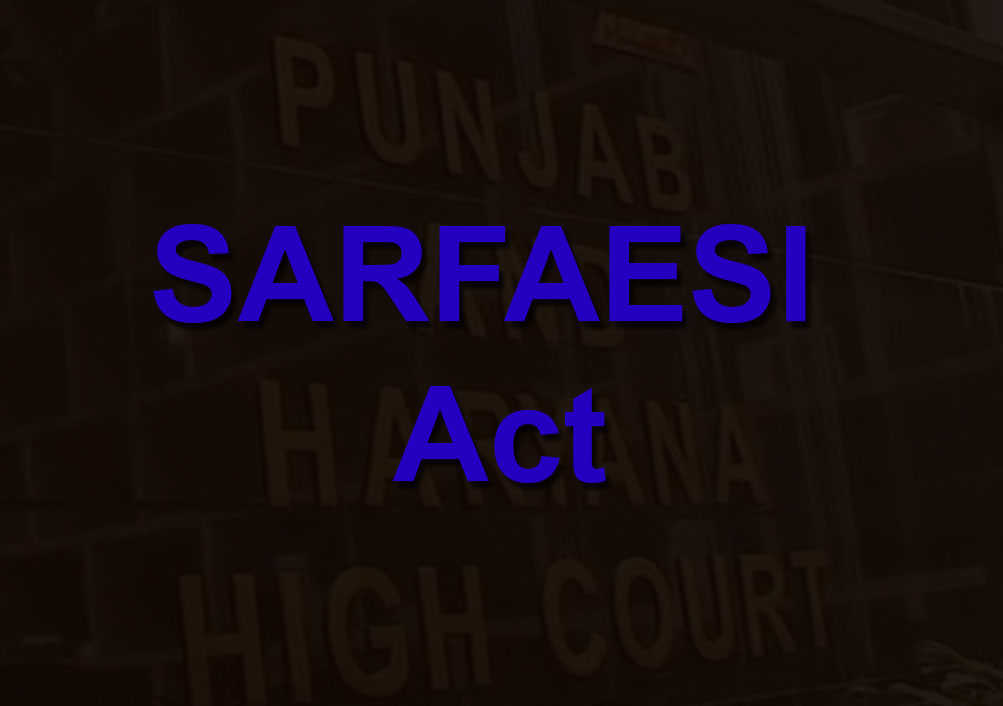Borrower aggrieved by proceedings initiated under SARFAESI Act by private Bank/Asset Reconstruction Company, should avail remedy under such Act as no writ petition would be maintainable: SC

Read Judgment: Phoenix Arc Private Limited V. Vishwa Bharati Vidya Mandir & Ors.
Pankaj Bajpai
New Delhi, January 13, 2022: The Supreme Court has opined that a writ petition against the private financial institution/asset reconstruction companies (ARC) under Article 226 of the Constitution of India against the proposed action/actions u/s 13(4) of the Securitization and Reconstruction of Financial Assets and Enforcement of Securities Interest Act, 2002 (SARFAESI Act), is not maintainable.
A Division Bench of Justice M.R. Shah and Justice B.V. Nagarathna observed that if proceedings are initiated under the SARFAESI Act and/or any proposed action is to be taken and the borrower is aggrieved by any of the actions of the private bank/bank/ARC, borrower has to avail the remedy under the SARFAESI Act and no writ petition would lie.
Going by the background of the case, Vishwa Bharati Vidya Mandir (first Respondent – Borrower) is running educational institutions and is a Society registered under the Karnataka Societies Registration Act, 1960 which had availed credit facilities to the tune of Rs.105,60,84,000/- from Saraswat Co-operative Bank Limited. Similarly, St. Ann’s Education Society had also availed credit facilities to the tune of Rs.20,05,00,000/- from the said Bank. In order to secure the due repayment of the credit facilities, personal guarantees and an equitable mortgage by way of deposit of title deeds were issued in favour of the bank.
On account of defaults committed by the respondents in repayment of the outstanding dues, the accounts of respondents were classified as a “Non-performing Asset” (NPA) by the Bank. As the respondents failed to repay the outstanding dues, the Bank issued a notice u/s 13(2) of the SARFAESI Act. Later, in the month of March, 2014, the NPA account of the respondents was assigned by the Bank in favour of Phoenix ARC Private Limited (Appellant).
Pursuant to the assignment of the NPA account in favour of the appellant, the borrowers approached the appellant with a request for restructuring the repayment of outstanding dues, which was accepted. However, the borrowers failed to repay the dues as per the Letter of Acceptance. Accordingly, the Appellant proposed to take possession of the mortgaged properties after expiry of 15 days. This was challenged by the Respondents contending that the possession notice u/s 13(4) of the SARFAESI Act was in violation of Rule 8(1) of the Security Interest (Enforcement) Rules, 2002.
The High Court therefore passed an ex-parte ad-interim order directing status quo to be maintained with regard to possession of the mortgaged properties subject to the borrowers making a payment of Rs. 1 crore with the appellant. The petition was opposed by the appellant by contending that the letter as such cannot be said to be taking a measure u/s 13(4) of the SARFAESI Act and that it was only a proposed action/measure to be taken by the appellant.
After considering the submissions, the Apex Court found that in the present case, the ARC – Appellant proposed to take action/actions under the SARFAESI Act to recover the borrowed amount as a secured creditor.
The ARC as such cannot be said to be performing public functions which are normally expected to be performed by the State authorities, added the Court.
Speaking for the Bench, Justice Shah noted that during the course of a commercial transaction and under the contract, the bank/ARC lent the money to the borrowers and therefore the said activity of the bank/ARC cannot be said to be as performing a public function which is normally expected to be performed by the State authorities.
“Assuming that the communication dated 13.08.2015 can be said to be a notice u/s 13(4) of the SARFAESI Act, in that case also, in view of the statutory remedy available u/s 17 of the SARFAESI Act and in view of the law laid down by this Court in the cases referred to hereinabove, the writ petitions against the notice u/s 13(4) of the SARFAESI Act was not required to be entertained by the High Court”, observed the Bench.
Therefore, the Top Court opined that the secured creditor and/or its assignor have a right to recover the amount due and payable to it from the borrowers, and the stay granted by the High Court would have serious adverse impact on the financial health of the secured creditor/assignor.
Hence, the High Court should have been extremely careful and circumspect in exercising its discretion while granting stay in such matters, said Apex Court while allowing the appeal and dismissing the proceedings before the High Court.
Sign up for our weekly newsletter to stay up to date on our product, events featured blog, special offer and all of the exciting things that take place here at Legitquest.




Add a Comment